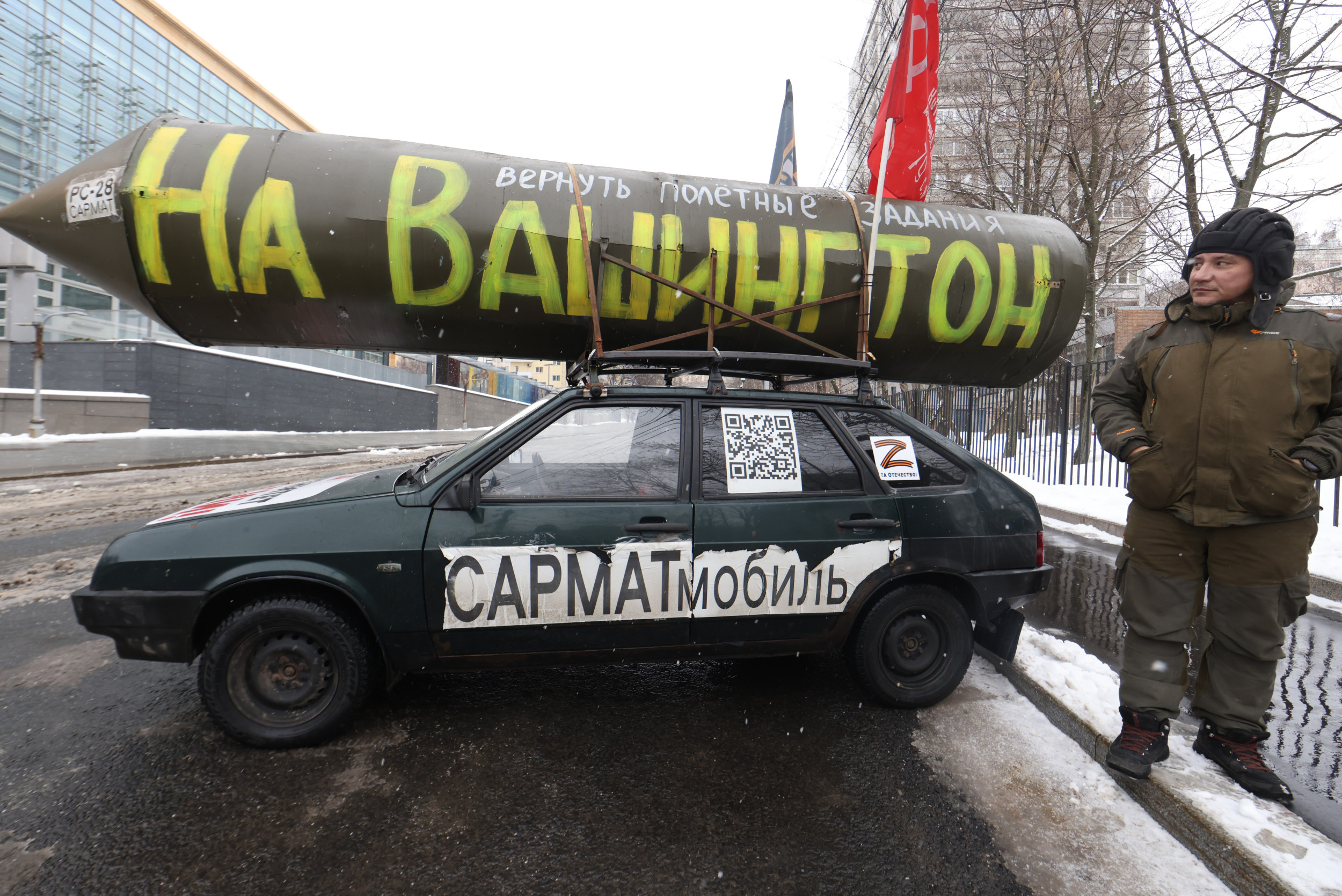Vladimir Putin is reassessing how to respond to Western support for long-range missile strikes on Russian territory, realizing that his nuclear threats may no longer carry the weight they once did. Reports suggest that after months of escalating tensions since Russia’s invasion of Ukraine, the Kremlin’s show of nuclear strength is failing to intimidate Western leaders.
Russian state media figures, including Alexander Mikhailov from the Bureau of Military Political Analysis, have made outlandish calls for targeting mock versions of iconic buildings in the U.S. and U.K. This is part of an ongoing series of aggressive posturing, but some Western allies have been hesitant to provide Ukraine with advanced missile systems like ATACMS and Storm Shadow due to fears of escalating the conflict.

Getty Images
There are indications that Western officials are increasingly unfazed by Moscow’s nuclear rhetoric, which could upset Russia’s partners in the Global South, as mentioned by The Washington Post. With key “red lines” being breached, Putin is reportedly crafting a “more nuanced and limited response” to any future Western military decisions, though specific strategies remain undisclosed.
Sources connected to senior diplomats suggest that resorting to nuclear options would likely be a last resort, as it could alienate allies and is considered ineffective from a military standpoint. Possible alternatives may involve increasing sabotage operations against Western military targets or utilizing proxy groups, such as Yemen’s Houthi militia, which has been active in the Red Sea region.
Recent satellite images revealed a failed test of Russia’s RS-28 Sarmat intercontinental ballistic missile at the Plesetsk Cosmodrome, highlighting ongoing military challenges. Observers noted the aftermath of the test, including damage to the launch site.
The U.S. maintains that there is no immediate threat of Russia deploying nuclear weapons in the conflict. Analysts from the Institute for the Study of War (ISW) also believe that current threats are more about distracting Western policymakers from advancing support for Ukraine.
